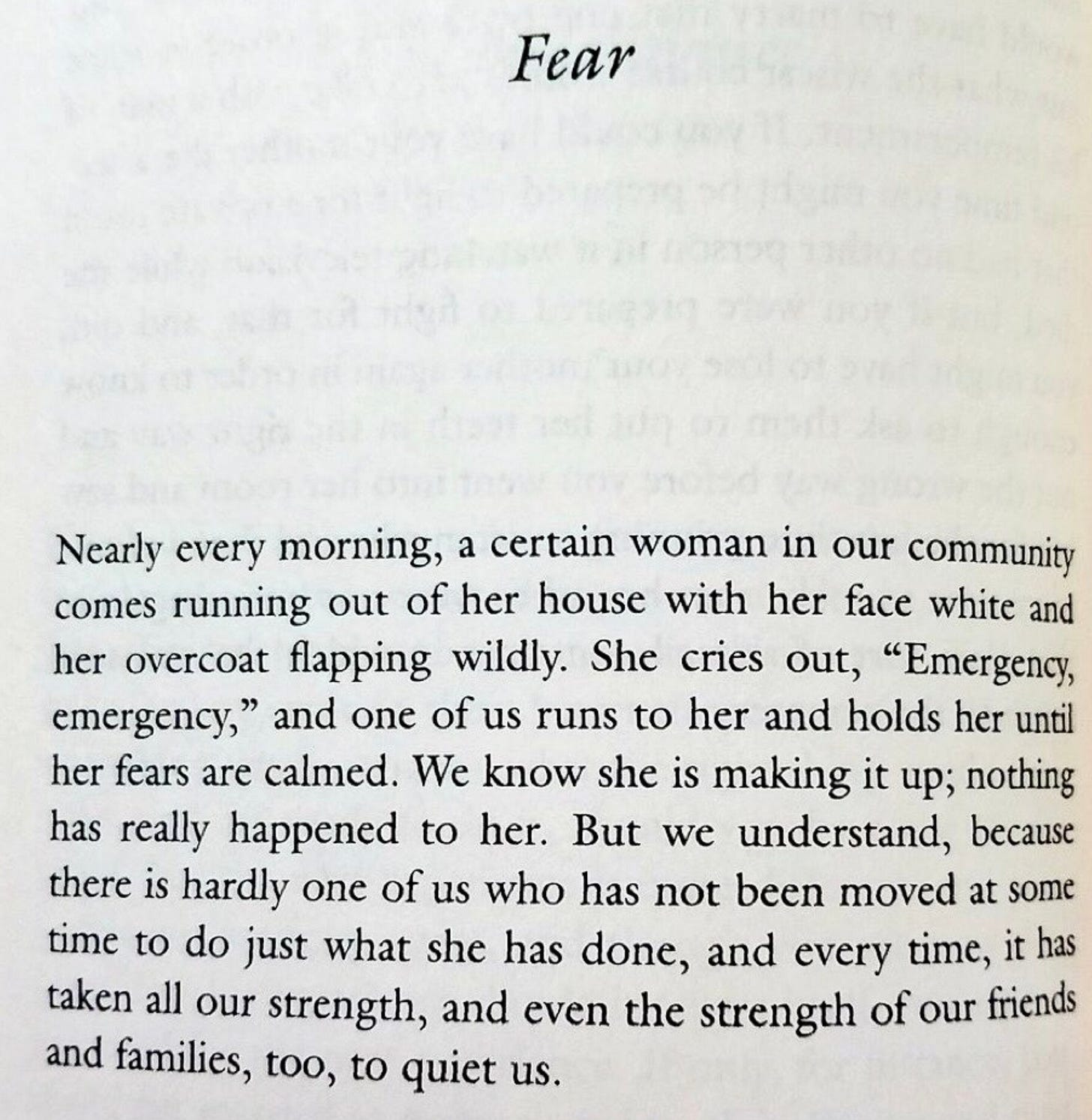Living away from most of my friends and my family influences the way I communicate with my close people. One anecdote I can share with you, with no strings attached: every day, I receive plenty of (involuntary) weather updates. They vary in forms – quick mentions in a text, windy voice notes, dedicated rants about the rain, bright photos – and they tend to come from places where I’ve lived. If I’m specifying the latter, it’s because I want to be transparent about where I’m coming from: I’ve expectations about the forecasts I receive, a general sense of what the weather should be at least. Yet, on the one hand, the idea that weather patterns hold at a time of climate collapse is nonsensical. On the other hand, there is as far as an expectation can go – and that is limited to one’s lens. There is no reciprocity in setting a personal expectation about something or someone’s doings.
As far as routines go though, I often receive two updates close in time, from two friends living in the same city, one reporting on the grey sky and the other one bursting with sunshine. For the record, I don’t think one of the two friends is lying, but that cities and emotions will always spread more widely than I can comprehend. It’s also been making me think about how much of a person a sentence can hold.
*
TO THE LINOTYPE OPERATOR
Forgive all my typing mistakes. First, it’s because my right hand was badly burned. And second, well, I have no idea really.
A request: please don’t correct me. Punctuation is the breath of the sentence, and that’s how my sentence breathes. And if you find me odd, respect that too. Even I have been forced to correct myself.
Writing is a curse.
— Clarice Lispector, 19th February 1968 (taken from Too Much of Life)
(I always recommend reading Ukrainian-born, Brazilian writer Clarice Lispector on a stormy day. I admire her passions and intensity.)
*
I also re-read Lydia Davis’ essay: ‘Revising One Sentence’ from Essays (2019). Davis starts with letting the reader know that, one morning, she was walking around the house feeling happy when she was struck by what she was doing. ‘One gesture’ had inspired Davis to write a sentence that would describe what she had ‘just been doing’ in her notebook. Davis, who is most famous for her flash and short fiction, explains that this ‘is usually an effective approach in writing because one striking element can be the culmination of a series of more familiar elements that would not stand on their own.’ The notebook Davis used was, she specifies, the one that ‘lies besides my “official” work because I write in it most when I am supposed to be doing something else.’ Davis adds that she rarely ‘uses’ entries from the notebook for her published stories, but she still revises the sentences she records in it. The first reason is that she would find it difficult not to correct the language. Secondly, comes the question of prosperity, and Davis details that while writing is initiated by an impulse, she never knows when and if the sentence will become something bigger. To that end, it’ll be easier to spot potential in a polished sentence further down the line. Then comes the unavoidable conversation about craft – the notebook as a place to practise both writing and thinking – and Davis tells us: ‘After all, when you revise a sentence you are revising not only the words of the sentence but also the thought in the sentence.’
The sentence as a weather forecast. While the search for the perfect – accurate, at least – sentence is about efficiency and language handling, the thought behind that quest is rarely solely artistic, communicative, or even moral. The sentence functions as a mirror of the self – an outburst, something impractical in the way of an emotion.
‘Oh, it’s on the tip of my tongue!’
Still in ‘Revising One Sentence’, Davis reveals that at the beginning of her career, she would sit in front of a typesetter, a clean white page fitted inside it, to write. She thought: ‘I must write a story.’ Until she accepted that ‘some sentences want to be stories right away.’
The more I write – this newsletter and other stories – the more I've had to accept that writing is about trust. To place confidence in the process, first and foremost, so I can trust readers that they’ll get it. Understand why I chose this word and the one next to it, why this tense and that comma, and that, importantly, they’ll see beyond the decisions the author made as well – run with the words, so the sentences can grow wings and become new stories. So we keep writing and sharing and we keep talking as a society.
‘All the world began with a yes. One molecule said yes to another molecule and life was born. But before prehistory there was the prehistory of the prehistory and there was the never and there was the yes. It was ever so. I don’t know why, but I do know that the universe never began.
Make no mistake, I only achieve simplicity with enormous effort.’
— Clarice Lispector, House of the Star
Language, stories force themselves on us, like the weather on a day, but what comes out of them is down to how we rewrite what was said. For the best and/or for the worst: nothing is new. I’ve also been selfish – still do – and I’ve rolled my eyes upon reading my friends’ weather updates, and I’ve been envious of the sunshine that has coloured their cheeks, until I realised that I wasn’t reading about the weather but about them. I was glimpsing at the world elsewhere through them – these wild, emotional humans I love.
If you’re my friend and you’re reading this: please keep sending me your weather forecasts. If you’d like to be my friend: please start telling me about the weather where you are.
I’ll get us started –
Monday 19th February 2024. In the kitchen, at the end of a miserable day, Ludo craves pasta and I want to dive inside a bowl of soup. It’s Monday and the beginning of the week fills me with exigence, so I say yes to Ludo when he reminds me that we've got semola in the cupboard. One of my favourite words by ear in Italian is Maltagliati. It means ‘badly cut’ and we cook a compromise.
Recipe for maltagliati (no pasta machine required):
semola
lukewarm water
In a large bowl, mix semola and lukewarm water with your hands. Knead until you obtain a homogeneous dough. With the help of a rolling pin, stretch the dough into a thin pasta sheet (as thin as you can and wish). Roughly (or badly) cut the pasta with a knife.
(One tip: next time you’re preparing fresh pasta, you can make maltagliati with any of the leftover dough and freeze them for future rainy days, or tomorrow’s lunch.)
Recipe for (maltagliati) pasta e fagioli:
1 litre veggie stock
1 white onion, chopped
1 carrot, cubbed
1 celery stalk, cubbed
1 can of borlotti beans
1 handful sage leaves, chopped
200 g maltagliati pasta (or other, store-bought pasta)
S&P to taste
In a casserole, sweat the onion, carrot and the celery with a generous gulp of olive oil. Cook for approx. 10 minutes. Add two third of the stock, half of the can of borlotti beans (inc. the water from the can) and the sage. Cook for 5 minutes. With an immersion blender, reduce the soup in a rough cream. You can keep as many bits as you’d like. Add the rest of the stock, the other half of the borlotti beans and the pasta. Simmer for another 3 to 5 minutes (or more if you’re using store-bought pasta; refer to the cooking instructions on the package).
Turn the heat off. Let the soup settle for 2 minutes or so, dress to your taste, serve.
*
Believe it or not, as I finish typing a draft for this newsletter (before revisions and corrections), suddenly, the sun steps sideways next to a cloud. It’s so bright that I must shift my body over the chair and move my laptop in the shade. What a beautiful day, I think, and I write to you.
Margaux
PS. If you enjoy this newsletter, feel free to forward it to a friend, or two. Merci!
further reading:
‘Found Material, Syntax, Brevity and the Beauty of Awkward Prose: Forms and Influences IV’ in Essays by Lydia Davis, which is the essay that follows the one referenced in this newsletter.
The first and only TV interview featuring Clarice Lispector: for TV Cultura in São Paulo (February 1977), via The Paris Review.
Fear by Lydia Davis:
Thank you for reading. The Onion Papers is a reader-supported publication. If you enjoy my work, you can support what I do by upgrading to a paid subscription. You’ll get access to the full archive and weekly entries. It costs £4 per month, or £40 a year, and you can unsubscribe at any time. No pressure: I’m happy you’re here either way.
#15: sage
There are daffodils on my desk, snowdrops have flowered, spilling milk drops across the grass in the city. It hasn’t snowed as much this month, but it has rained – ‘February Filldyke’ as some might say – during hours that felt like the end of times, the air so crisp and the sky purple after each fall. It’s becoming harder to beat the sun, the day still …












The weather in the Pacific Northwest (45 min from Seattle) is wet--has been since yesterday. But I don't let that mess with my mood too much; I bought an anti-SAD light - so bright it curls your eyebrows--and that does the trick. It's not warming, but still makes me feel like I'm folding my sourdough in the sunshine. Today I'm making an 80% whole grain, freshly (Mockmill-) milled Mischbrot with rye, hard red & white wheat, Triticale & Spelt and just 100g breadflour. I'm trying to move away from the overly processed entities in our lives. I will make your soup today too -- I still have some homemake pasta that I dried a month ago that will go nicely with that. And I will add garlic -- like -- what's a meal without garlic? That sh*t really works - it makes me feel good and keeps the vampires away. Haven't seen one here -- ever. ;)